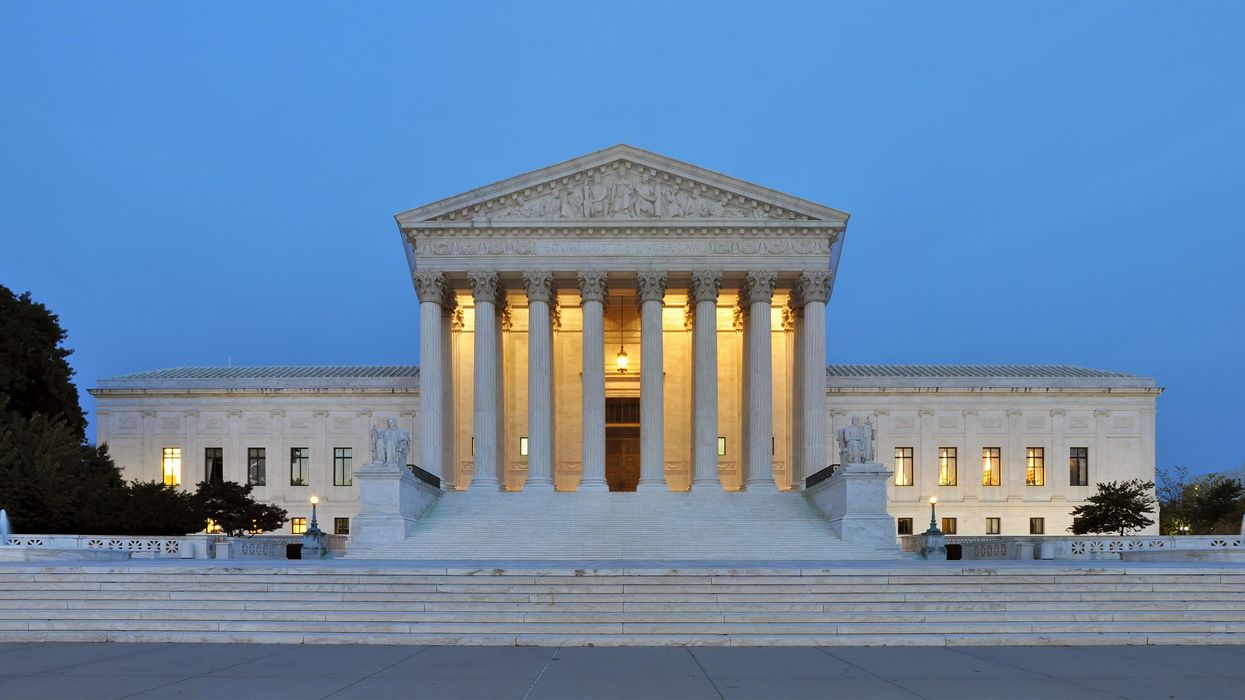Johnson is a United Methodist pastor, the author of "Holding Up Your Corner: Talking About Race in Your Community" (Abingdon Press, 2017) and program director for the Bridge Alliance, which houses The Fulcrum.
The Supreme Court is currently examining a case of importance, one that brings race-based philanthropy into question. The case in question involves the Fearless Fund, an Atlanta-based organization led by Black women dedicated to combating the underfunding of venture capital by providing grants, tools and mentorship to women of color.
The American Alliance for Equal Rights, in representation of anti-affirmative interest, has taken legal action against the Fearless Fund. AAER alleges the Fearless Fund’s grant program for Black female entrepreneurs constitutes racial discrimination. In response, the Council on Foundations and Independent Sector has filed a joint amicus brief supporting the Fearless Foundation. The council is urging the court to dismiss the lawsuit and uphold the First Amendment right to donate to charitable causes that align with individual values, including efforts to support historically marginalized groups.
The opposing argument contends that race-based philanthropy infringes on the equal protection clause of the Constitution. It is a claim seeking to promote a more equitable distribution of resources and opportunities, asserting that race-based practices perpetuate racial divisions and undermine the goal of a color-blind society.
However, the Council on Foundations and Independent Sector asserts that race-based giving is not only constitutional but also essential for addressing historic and systemic racial disparities. It argues that race-neutral strategies fail to address the specific challenges that communities of color face due to systemic racism. Moreover, the Fearless Fund’s supporting parties emphasize that race-based granting aims to level the playing field by providing targeted support to individuals and communities that have been systematically marginalized and disadvantaged.
As a program developer, I've had the unique opportunity to design and advocate for initiatives tailored to empower and uplift communities of color. This work has instilled within me a deep appreciation for the critical importance of race-focused funding. Our society's disparities are evident to those who operate at the nexus of philanthropy and social justice. We've personally witnessed the transformative power that targeted funding can have in redressing these disparities. This transformative potential hangs in the balance with the court's ruling, which has the power to either validate or undermine the practices we've championed – hence the gravity of this case.
Initiatives led by national entities like the Ford Foundation could face mission-altering changes depending on the decision. Ford serves as a sterling example of the efficacy and potential impact of race-focused funding. With a staggering commitment of $330 million over 2020 and 2021, the foundation has shown an unwavering commitment to racial justice. These ambitious efforts underscore the potential of focused funding to address racial disparities nationally.
Another example of the imperative for targeted granting and resource allocation is the Harlem Children's Zone, known for its innovative initiatives promoting racial equity and economic security in New York’s Harlem neighborhood. It has secured significant funding, including a $26 million commitment from The Audacious Project dedicated to addressing the needs of Black communities.
In my executive role with Bridge Alliance, I've partnered with community and private foundations to establish an equity fund. This fund prioritizes BIPOC+ communities and supports uniquely diverse regional and national leaders. Our work involves making strategic decisions about resource allocation, a role that could be significantly impacted by new legal restrictions on race-focused grants. However, we also acknowledge that the court's ruling may compel the field to devise more nuanced and innovative strategies to achieve our goals while working within the legal framework.
Lastly, I know intimately the life-changing impact of race-focused philanthropic efforts. Such grantmaking often provides access to education, opportunities and resources that would otherwise remain out of reach, addressing systemic inequalities in our society. It is important to remember these funds and strategic practices directing their disbursement hold transformative potential for individuals and communities of color.
The Supreme Court’s consideration of this matter is not merely about legal technicalities but the future of racial equity and the effectualness of focused funding. The court's ruling will undoubtedly send ripples through the philanthropic landscape, potentially redefining the strategies and means employed to achieve racial equity. Irrespective of one's stance on the issue, the conversations sparked by this filing underscore the pressing need for continued addressing of racial disparities in our society.




















Trump & Hegseth gave Mark Kelly a huge 2028 gift